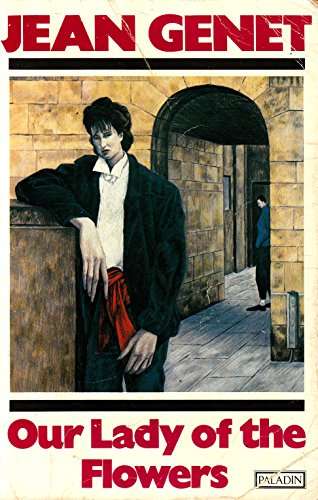
Our Lady of the Flowers - Jean Genet
Check my rate
| Main centres: | 1-3 business days |
| Regional areas: | 3-4 business days |
| Remote areas: | 3-5 business days |

| Main centres: | 1-3 business days |
| Regional areas: | 3-4 business days |
| Remote areas: | 3-5 business days |
Published by Paladin, 1988, softcover, 236 pages, condition: as new.
'Our Lady of the Flowers', which is often considered to be Genet's masterpiece, was written entirely in the solitude of a prison cell. the exceptional value of the work lies in its ambiguity.
Jean Genet (1910-1986) was born in Paris. Abandoned by his mother at seven months, he was raised in state institutions and charged with his first crime when he was ten. After spending many of his teenage years in a reformatory, Genet enrolled in the Foreign Legion, though he later deserted, turning to a life of thieving and pimping that resulted in repeated jail terms and, eventually, a sentence of life imprisonment. In prison Genet began to write poems and prose that combined p***ography and an open celebration of criminality with an extraordinary baroque, high literary style and on the strength of this work found himself acclaimed by such literary luminaries as Jean Cocteau, Jean-Paul Sartre, and Simone de Beauvoir, whose advocacy secured for him a presidential pardon in 1948. Between 1944 and 1948 Genet wrote four novels, Our Lady of the Flowers, Miracle of the Rose, Funeral Rites, and Querelle, and the scandalizing memoir A Thiefs Journal. Throughout the Fifties he devoted himself to theater, writing the boldly experimental and increasingly political plays The Balcony, The Blacks, and The Screens. After a silence of some twenty years, Genet began his last book, Prisoner of Love, in 1983. It was completed just before he died.
Introduction by Jean -Paul Satre.